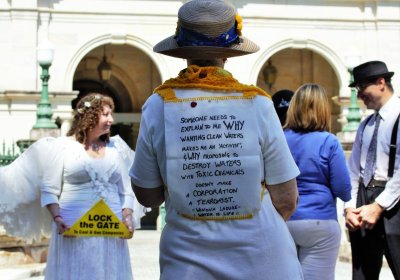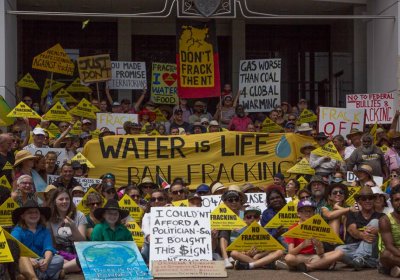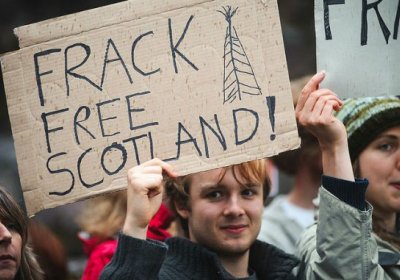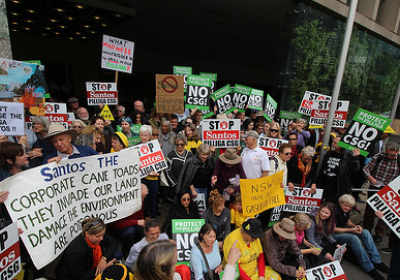As the newly-elected Queensland state parliament met for the first time on February 14, a small group of dedicated Protectors from Families Against Fossil Fuels and Standing with Sandi held their regular #StandAgainstCSG protest outside its doors.
Sandra Bamberry (Sandi) is the mother of two little girls who have experienced negative health impacts, including ongoing nosebleeds and nausea, from the many coal seam gas (CSG) mines that now surround their home on the Tara gasfields.











